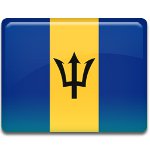Day of National Significance in Barbados Date in the current year: July 26, 2026
 The period between April 14 and August 23 is known in Barbados as the “Season of Emancipation”. For over three months, Barbadians commemorate the events leading up to the emancipation of slaves and eventually to the country’s independence. These commemorations include the Day of National Significance, which is observed on July 26.
The period between April 14 and August 23 is known in Barbados as the “Season of Emancipation”. For over three months, Barbadians commemorate the events leading up to the emancipation of slaves and eventually to the country’s independence. These commemorations include the Day of National Significance, which is observed on July 26.The Day of National Significance commemorates the labor riots of 1937, which were part of the British West Indian Labor unrest of 1934–1937. The riots made the British government acknowledge the poor conditions endured by much of the population of the Caribbean colonies, as well as led to the emergence of the Caribbean trade union movement.
Although slavery was officially abolished in 1833 in the British Empire, it was largely replaced by indentured servitude. The indenture system in the Caribbean was banned by 1917, but the situation in the plantations was still rather precarious. As the Great Depression set in, the prices of agricultural staples produced in the Caribbean fell sharply, the exports reduced, and so did the wages of agricultural workers. Lots of people became unemployed or underemployed, but colonial authorities did nothing to deal with the situation.
The first to protest were laborers in British Honduras, whose agitation transformed into a full-blown riot in September 1934. Their example was followed by laborers on Trinidad and Saint Kitts, in Jamaica and British Guiana. Barbadian laborers joined the wave of unrest in July 1937, following the arrest of Clement Payne.
Payne was a Trinidad-born trade union activist who became involved with the trade union movement in 1927. Ten years later, he organized several public meetings in Bridgetown, encouraging black Barbadians to resist white planters. As a result, Payne was deported from Barbados by the authorities. His deportation to Trinidad led to four days of rioting which ended only after the police opened fire, killing 14 protesters and wounding 47.
The British government couldn’t ignore protests of such a scale and created the West India Royal Commission, also known as the Moyne Commission, to investigate the situation in British West Indies colonies. The Commission reported on the poor living conditions in the colonies and offered possible solutions to the problem, including some reforms proposed by Payne, such as the introduction of trade union laws.
The 1937 labor riots in Barbados became a turning point for Barbados, spurring the emergence of the first political parties, which would later lead to autonomy and, eventually, independence. That’s why the anniversary of the day when the riots began was declared the Day of National Significance.
Alongside the Day of National Significance, the Season of Emancipation in Barbados includes the anniversary of Bussa’s slave rebellion (April 14), National Heroes Day (April 28), Crop Over Festival (May – early August), Africa Day (May 25), Emancipation Day (August 1), Marcus Garvey’s birthday (August 17), and International Day for the Remembrance of the Slave Trade and its Abolition (August 23). Only two of these commemorations, National Heroes Day and Emancipation Day, are public holidays.
- Category
- Anniversaries and Memorial Days
- Country
- Barbados
- Tags
- Day of National Significance in Barbados, holidays in Barbados, commemoration, Season of Emancipation